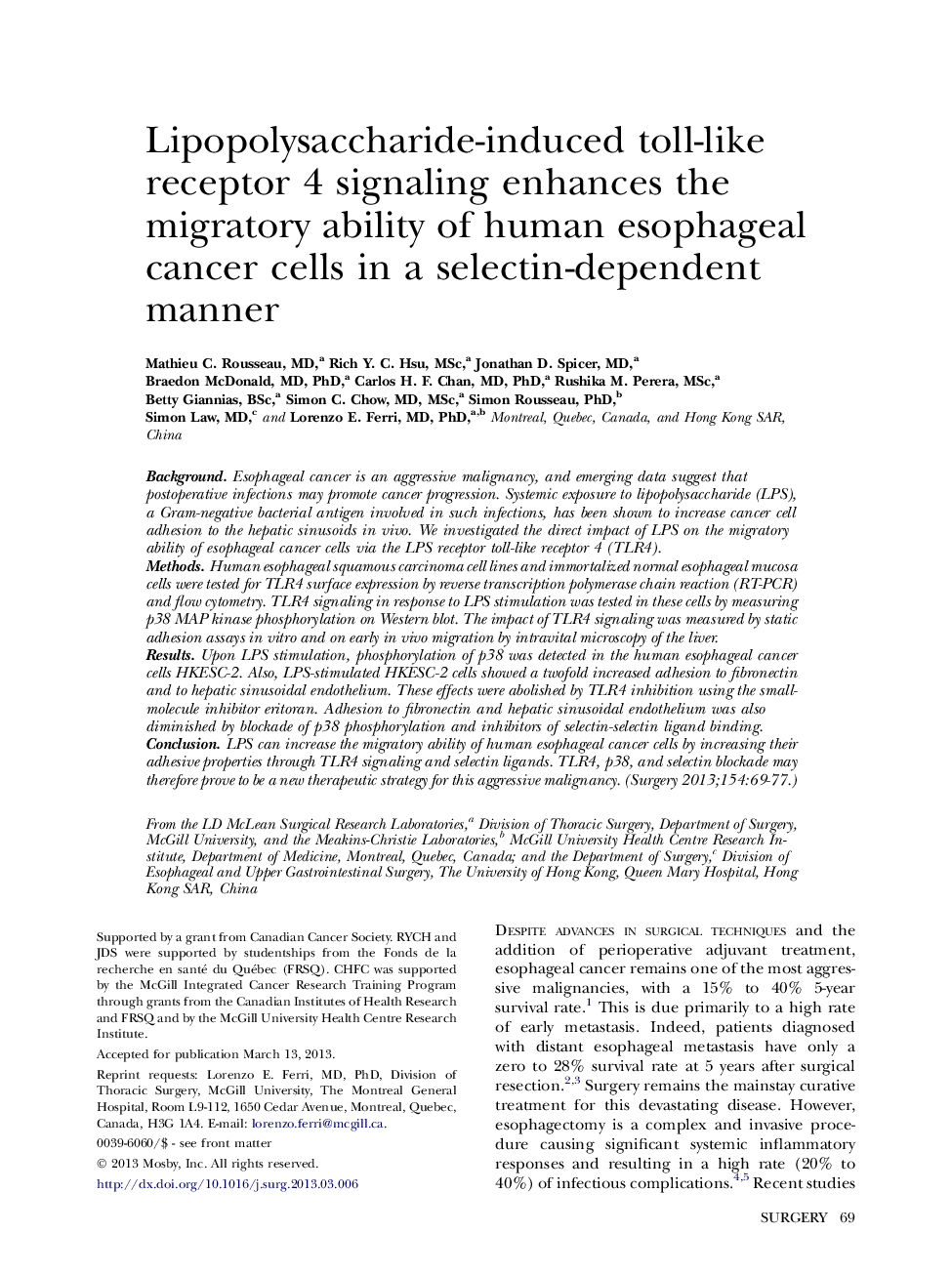| Article ID | Journal | Published Year | Pages | File Type |
|---|---|---|---|---|
| 4307349 | Surgery | 2013 | 9 Pages |
BackgroundEsophageal cancer is an aggressive malignancy, and emerging data suggest that postoperative infections may promote cancer progression. Systemic exposure to lipopolysaccharide (LPS), a Gram-negative bacterial antigen involved in such infections, has been shown to increase cancer cell adhesion to the hepatic sinusoids in vivo. We investigated the direct impact of LPS on the migratory ability of esophageal cancer cells via the LPS receptor toll-like receptor 4 (TLR4).MethodsHuman esophageal squamous carcinoma cell lines and immortalized normal esophageal mucosa cells were tested for TLR4 surface expression by reverse transcription polymerase chain reaction (RT-PCR) and flow cytometry. TLR4 signaling in response to LPS stimulation was tested in these cells by measuring p38 MAP kinase phosphorylation on Western blot. The impact of TLR4 signaling was measured by static adhesion assays in vitro and on early in vivo migration by intravital microscopy of the liver.ResultsUpon LPS stimulation, phosphorylation of p38 was detected in the human esophageal cancer cells HKESC-2. Also, LPS-stimulated HKESC-2 cells showed a twofold increased adhesion to fibronectin and to hepatic sinusoidal endothelium. These effects were abolished by TLR4 inhibition using the small-molecule inhibitor eritoran. Adhesion to fibronectin and hepatic sinusoidal endothelium was also diminished by blockade of p38 phosphorylation and inhibitors of selectin-selectin ligand binding.ConclusionLPS can increase the migratory ability of human esophageal cancer cells by increasing their adhesive properties through TLR4 signaling and selectin ligands. TLR4, p38, and selectin blockade may therefore prove to be a new therapeutic strategy for this aggressive malignancy.
